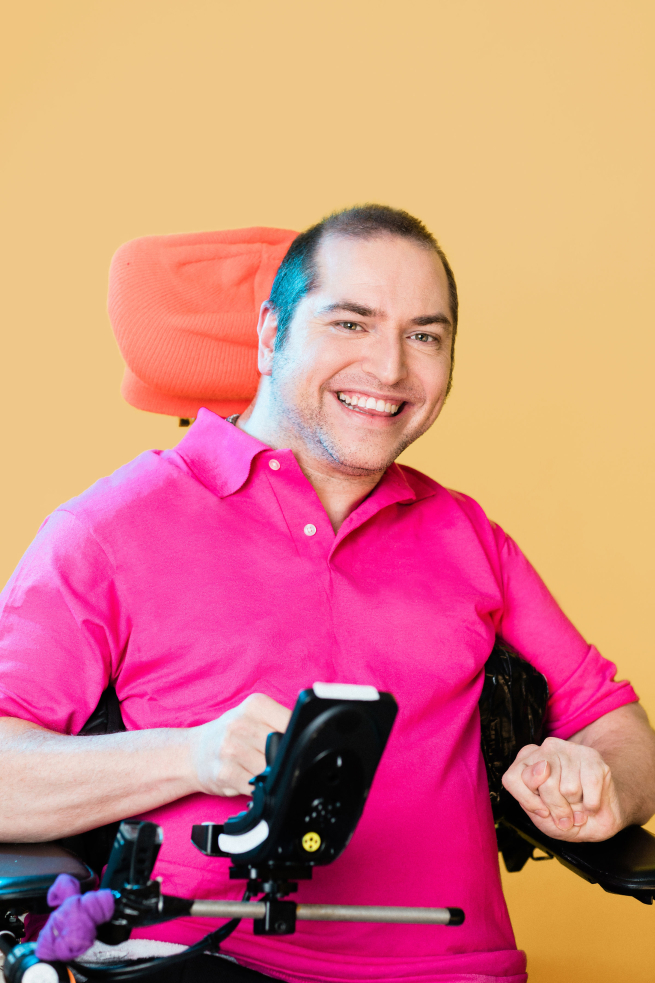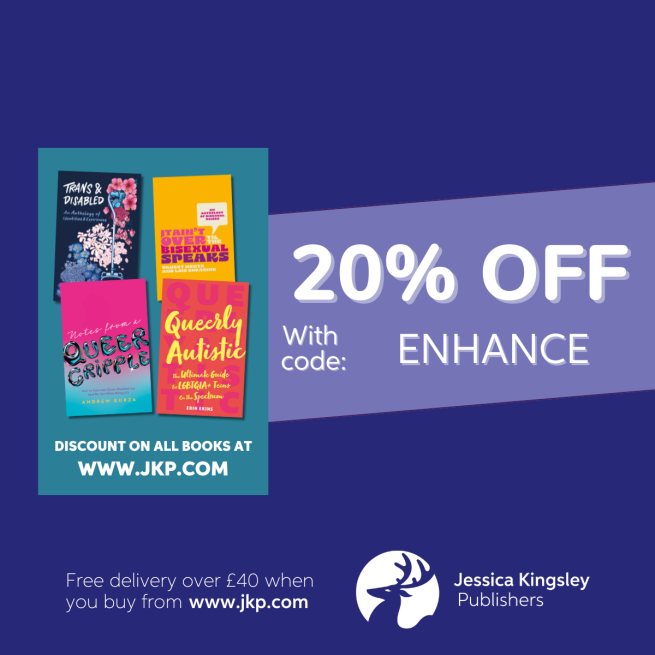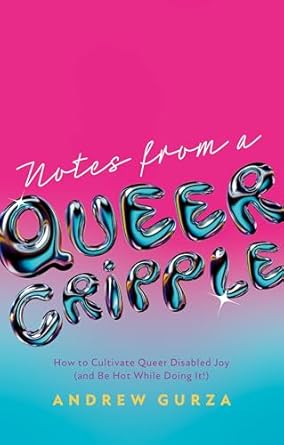
There is no better time to be following Andrew Gurza on Instagram than right now. His debut book, ‘Notes From A Queer Cripple: How to Cultivate Queer Disabled Joy (and Be Hot While Doing It!)‘ is due for release on April 26th through Jessica Kingsley Publishers and it is a joy to read. The book, much like Andrew’s Instagram is an unapologetic, open, honest account of queer disabled experiences and sexuality.
Andrew bounces from topics such as ableism to accessible spaces to the realities of coming out to carers. All this is in his trademark humour and relatable writing style.

We asked Andrew questions about his writing process and what inspired him to write such an important book.
What made you decide to write a book and how was the process?
Funnily enough, I had wanted to write this exact book for years before being approached about it by Jessica Kingsley Publishers. One of their editorial staff found me through my tweets, and said that they’d love to see an outline for a book, if I would take a meeting. That was back in 2022. I signed the contract and then took about 2 years, and several meetings to actually write the book. I needed a lot of reassurance and encouragement because I didn’t believe that what I was saying had any value. Once I got in the groove of writing, it was pretty seamless, but unearthing some of those stories and accessing that vulnerability was hard.

Visit the Jessica Kingsley Publishers page to shop the book. Use code ENHANCE20 for 20% off.
How did you find being so open in the book about your sexual experiences and disability?
I have been talking about sex and disability and my experiences for almost 15 years, so I am pretty comfortable doing that. I love talking about it because I think that it is just as important as talking about ramps, elevators and access, if not more. While I was comfy doing it, there are some stories that even my family hasn’t heard, so knowing those stories would be out there has been nerve wracking, lol. (Sorry, mom).
Why are so many queer spaces so inaccessible for disabled people?
I was ready to write you a big, long, expansive answer but the truth is: ableism. We have all this money in the queer community to donate to so many causes (and we should!) but for some reason (ableism) we can’t make a club actually accessible? Come on. Our attitudes around sex and disability need to change, and we need to address ableism in queer spaces first.
How do you find being so visible online -do you find it a positive or negative experience?
I’d be lying if I said it was easy to be disabled online as a public figure. I am so grateful for all the visibility has brought me; a book, for one. That said, I won’t lie, it has also been incredibly negative. Some of the cruelest things I’ve heard have come from other disabled people. So, I love the platforms that I have built, and I am always learning, growing and apologising when I misstep, but I am also learning to protect my peace. I am so thankful when someone says they love my stuff, but I am also learning to be thankful when I am called out. How can I do better? That’s an important lesson that I am constantly asking myself.
Your chapter on queerness and caregiving was powerful – what do you wish people knew about care and being queer/non-binary?
I wish that people understood that so many people with disabilities who intersect with queerness and disability who need care, may not be able to be 100% themselves by way of non-binary, gender non-conforming or trans identities, because they need care. The care system is stuck in a binary place, and so many of us have to hide all of who we are, and that can be exhausting.

What was one of the most powerful things you learned while writing the book?
I was constantly reminded that sex and disability are so taboo in 2025. Every time I recounted one of the essays or sat down to write a new chapter, I realised that I had never seen anything like this in the world. That realisation was both triumphantly exhilarating but also sad as f*ck. I hope this book opens the floodgates for other queer cripples to tell their stories.
What advice would you give to other disabled queer people?
Talk about the hard stuff. Don’t do what every other queer disabled cripple is doing. Tell your story; I promise, we’ve heard nothing like it. Fight for sexual rights and autonomy, they’re just as important as other forms of accessibility. Be more disabled and f*ck the haters.
Visit the Jessica Kingsley Publishers page to shop the book. Use code ENHANCE20 for 20% off.
Want to read more blog posts? Why not visit our blog page
